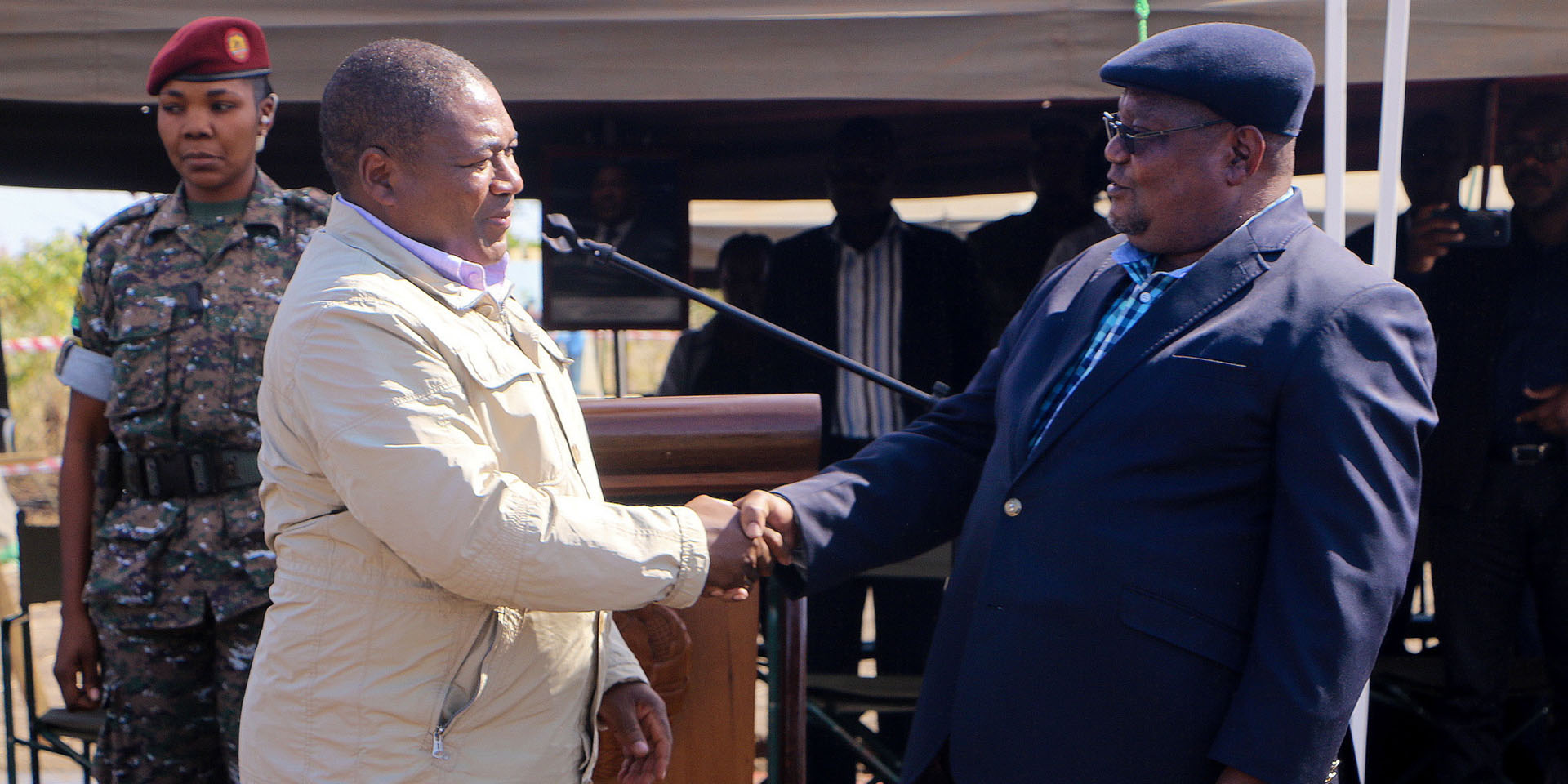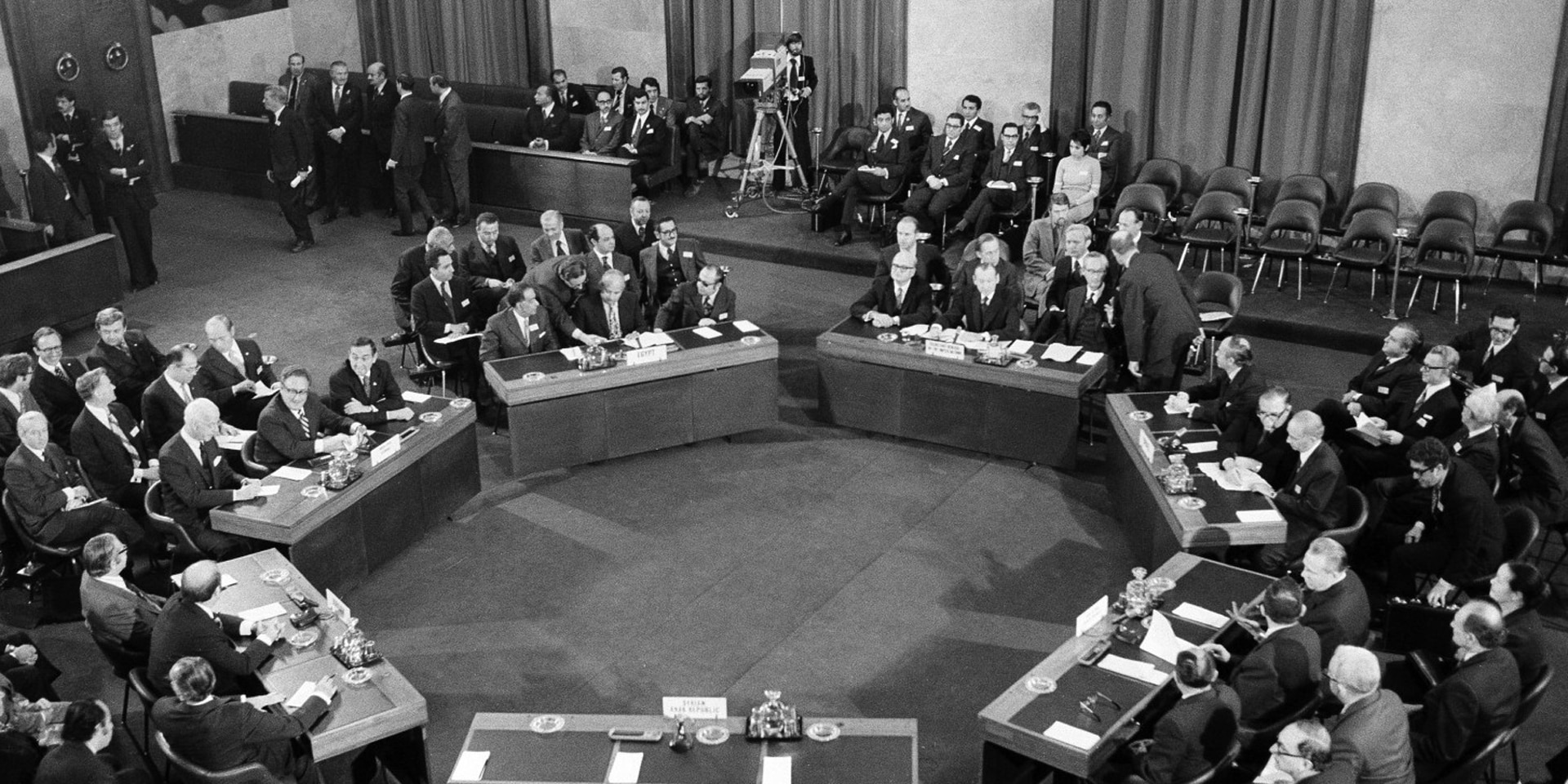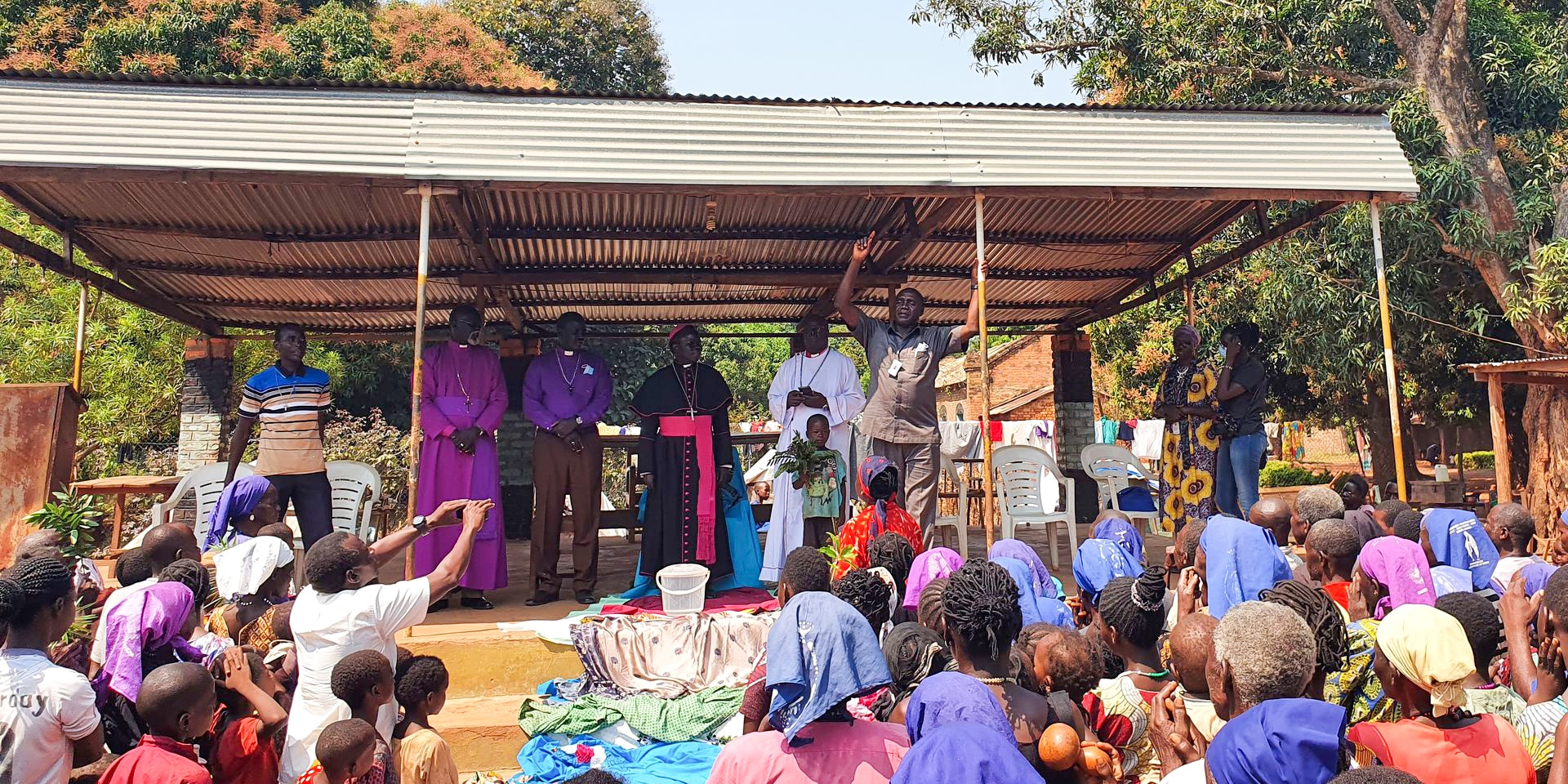Engaging in dialogue to reduce violence: Switzerland's good offices are keeping pace with the times
Switzerland is hard at work in the Sahel region to find tangible solutions for peace, including with armed groups. What instruments is it deploying to do so? To gain an understanding of all this, let's go on a mission with the FDFA's Peace and Human Rights Division: three stopovers in this large region of Africa to understand what it means to prevent and reduce violence through dialogue.
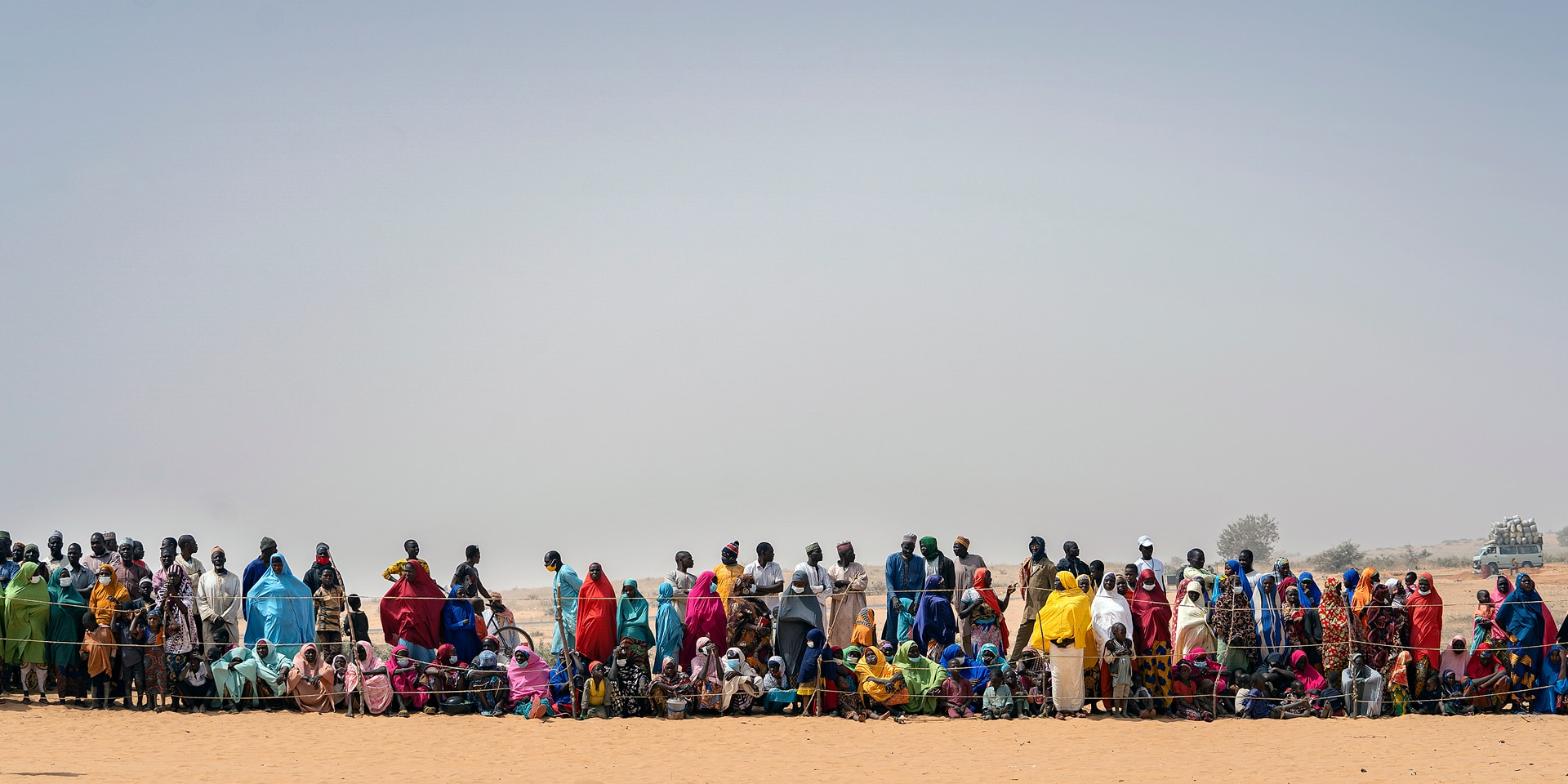
In the central Sahel (Mali, Niger and Burkina Faso), armed violence has been causing great suffering to the population for years. © FDFA
Africa is witnessing a rise in violence linked to non-state armed groups. According to the Global Terrorism Index, in 2022 about 60% of deaths related to these groups occurred in sub-Saharan Africa. And this trend has gained traction in recent years, with the number of deaths up by 48% from 2022 to 2023. Over 22,000 lives were lost during that period – 15,000 during the 2021–22 period – according to Africa Centre for Strategic Studies. These developments concern first and foremost the huge and diverse Sahel region. Armed groups control entire regions in Mali, Niger and Burkina Faso and there are fears that they could spread further south towards the coastal states. Switzerland must adapt its good offices to the global situation, bearing in mind these alarming trends. Because there are no 'one-size-fits-all good offices'. On a case-by-case basis, Switzerland decides if and how it is possible to intervene, open doors, and create added value – sometimes with a dose of innovation. Within this context, preventing and reducing violence through dialogue plays a key role for Switzerland. Let's see how.
Dialogue with non-state armed groups
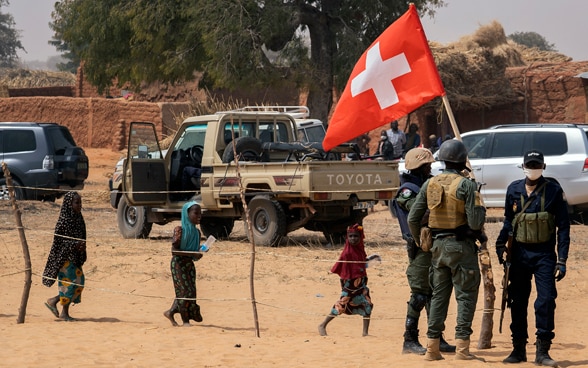
Our mission starts when a government asks Switzerland to facilitate a process of dialogue with non-state armed groups. When a state requests Switzerland for such help, how does the FDFA respond?
Patrizia Palmiero, head of the FDFA's Peace – Africa Section, explains: "We first map the actors and analyse the context, as well as the risks, the channels of dialogue already established, the potential for success and the added value of Switzerland. Taken together with the many other factors we look at, this assessment forms the basis for deciding whether or not to intervene. A small team is then set up, consisting of members of the Peace and Human Rights Division based in Bern and on the ground, sometimes backed up ad hoc by external partners. Working with local contacts is also crucial. As you can imagine, this kind of work relies heavily on trust, personal networks built up over time, discretion and confidentiality. It also necessitates trips to remote areas, as there is still nothing more effective than face-to-face dialogue."
The second stage focuses on identifying confidence-building measures and drawing up a roadmap. There may of course be a number of external factors impacting the process. And given that these areas are, after all, conflict zones we have to stay agile and constantly adapt our modus operandi to the given circumstances. In the case at hand, the extensive and persistent efforts paid off: in the end, the parties drew up partial agreements halting the violence at least temporarily and demobilising the armed groups' combatants, who were to be reintegrated into local communities or the state's forces of order. Not forgetting the legal measures stipulating how war crime accusations were to be dealt with. All this forms an invaluable foundation for making progress towards a long-term political solution.
Working with Islamic scholars
The dose of innovation mentioned above comes into play when setting out on our second mission, which focuses on engaging in dialogue with the independent scholars of Islamic doctrine and law referred to as ālim, or 'ulamā in Arabic. Some non-state armed groups attach great importance to the teachings of these scholars, who rule on what is lawful according to Islamic jurisprudence (fiqh). For its part, Switzerland has a long-standing tradition of promoting international humanitarian law, a set of rules aimed at protecting the victims of conflicts and the civilian population. The rather innovative idea here was to exploit the synergies that can be generated by intertwining the principles of international humanitarian law, which all combatants are bound to respect, with the fiqh.
Forum for regional dialogue: cross-country coordination
The third mission takes place at regional level: Switzerland works with the United Nations Office for West Africa and the Sahel, which is engaged in preventive diplomacy, good offices, mediation and facilitation in the region. Our country has also promoted the organisation of a series of discussion forums between ministers and decision-makers from different states on preventing violence in West and Central Africa. The idea driving this initiative is that while self-defence is the natural reaction when facing violence, there is also another way to respond: to tackle the problem at its roots. This kind of approach is the added value that Switzerland has been furnishing in this field for several years now.
Switzerland's engagement on the African continent reveals more regions and more ways of offering goof offices. Collaboration at regional level is central. The next article will focus on the latter, starting with the Great Lakes region.

